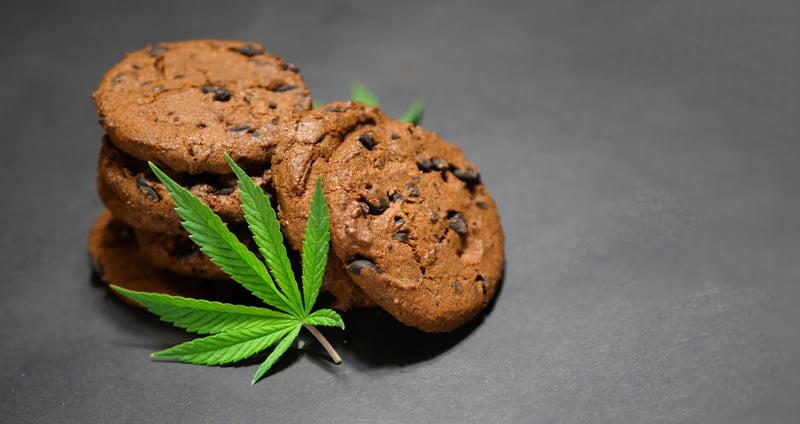Due to a recent change of our website, the process for submitting refill requests online has now changed.
Please click on “Sign Up Today!†to create a new account, and be sure to download our NEW Mobile app!
Thank you for your patience during this transition
Manténgase sano!

- Alan Mozes
- Posted July 27, 2023
With Marijuana's Legalization, Cannabis Poisonings Are on the Rise
In recent years, the legalization of both medical and recreational marijuana has become the new normal across much of North America.
The problem: New research finds that as legalization has spread, so have cases of cannabis poisoning.
"We did a systematic review of published studies reporting on what happened to the rates of poisoning after legalization or decriminalization,"explained study author Nicholas Buckley, a professor of clinical pharmacology, biomedical informatics and digital health at the University of Sydney in Australia.
"With either, the rate generally went up,"Buckley noted. "The extent to which it did was quite variable. But on average [poisoning risk] went up three to four times. The rises in children were even more dramatic."
The researchers noted that cannabis poisoning stems from ingesting too much marijuana in one go.
When it occurs, it can manifest in a wide variety of ways, including sleepiness, dizziness, high blood pressure, palpitations, feelings of lethargy, a fast heart rate, nausea, vomiting, agitation and irritability. Children are particularly vulnerable, with extreme cases having the potential to send some patients into a coma.
In all, the team reviewed 30 published studies. Most (23) were conducted in the United States. Another six had been run in Canada. Only one focused on a jurisdiction outside North America: Thailand. Nearly two-thirds (19) of the studies focused on the risk for marijuana poisoning among children.
In all, 24 studies indicated that when legalization took hold, poisoning risk went up.
Still, when legalization involved recreational use, the degree to which poisoning risk rose varied greatly depending on the particular study at hand.
By contrast, where legalization involved medical marijuana use, rises in poisoning risk were both consistently higher (compared with recreational use), and relatively similar across jurisdictions.
Because nearly all the studies were conducted in North America, the review team cautioned that it's hard to say if the apparent association between legalization and poisoning risk would also play out in other countries or cultural contexts.
But in North America, the study team suggested that with legalization fueling a growing perception that marijuana is safe, the link between the two could just be a simple function of more is more: more legalization driving more marijuana use, which in turn drives up the risk for poisoning.
At the same time, added Buckley, "there are also likely changes in patterns of use, with a common shift to more use of "edibles,"meaning marijuana products that are chewed and eaten, rather than smoked.
Growing edible use is a potentially big driver of poisonings, he noted, given that "the largest rise and most concerning rise is in accidental poisonings in young children."
And this is because "edibles are often made to look and taste like sweets," said Buckley, who is also with the Australia New South Wales Poisons Information Centre in Sydney. Those sweets, he said, are then marketed in forms -- such as lollipops -- that are particularly attractive to young people.
Buckley's suggestion: Halt both the production and advertising of marijuana products that are explicitly designed to draw in young users.
"Governments should anticipate the problem and take some simple precautions when they introduce legislation,"said Buckley. "For example, we don't generally allow manufacturers to make and package medication or potentially toxic products that look like lollies or food. Why should this be an exception?"
The findings were published July 27 in the journal Addiction.
Paul Armentano is deputy director of NORML, a Washington, D.C.-based marijuana legalization advocacy organization.
Though not involved in the analysis, Armentano was not opposed to the idea of legal guard rails that could reduce cannabis-related health risks.
"The imposition of sensible regulations on the cannabis industry -- coupled with better public safety information and greater consumer responsibility and accountability -- are the best strategies to address cannabis-specific health concerns due to the inadvertent ingestion or over-ingestion of these products,"he said.
Armentano noted, for example, that on the one hand consumers should be clearly "informed that cannabis-infused oral products possess delayed onset, greater variability and prolonged duration of effect compared to inhaled marijuana.
"Furthermore,"he added, "these products ought to be uniquely and distinctly labeled in a manner that makes it readily clear that they contain cannabis and they ought to be sold in child-resistant packaging, so as to better discourage inadvertent consumption."
At the same time, Armentano argued against overdramatizing health risks linked to legalization.
"The constant referring to these events as 'poisonings' seems sensational,"he said. "Many of these events are due to the inadvertent exposure of cannabis-infused products. Others are due to use by naive users who may become uncomfortable with the effects of cannabis and experience a panic episode. Some of these events are the results of overconsumption."
But Armentano stressed that unlike the sometimes fatal risks posed by other legal products such as laundry detergent pods and alcohol, "the overwhelming majority of inadvertent or overindulgent cannabis exposures --including those resulting in ER visits -- result in nominal health interventions."
In fact, he said, most adults who seek medical care linked to marijuana use "are discharged within a few hours."
More information
There's more on marijuana and safety risks at the U.S. Substance Abuse and Mental Health Services Administration.
SOURCES: Nicholas Buckley, FAHMS, professor, clinical pharmacology, faculty of medicine and health, School of Medical Sciences, Biomedical Informatics and Digital Health, University of Sydney, and Australia New South Wales Poisons Information Centre, Children's Hospital at Westmead, Sydney, Australia; Paul Armentano, deputy director, NORML, Washington, D.C.; Addiction, July 27, 2023
